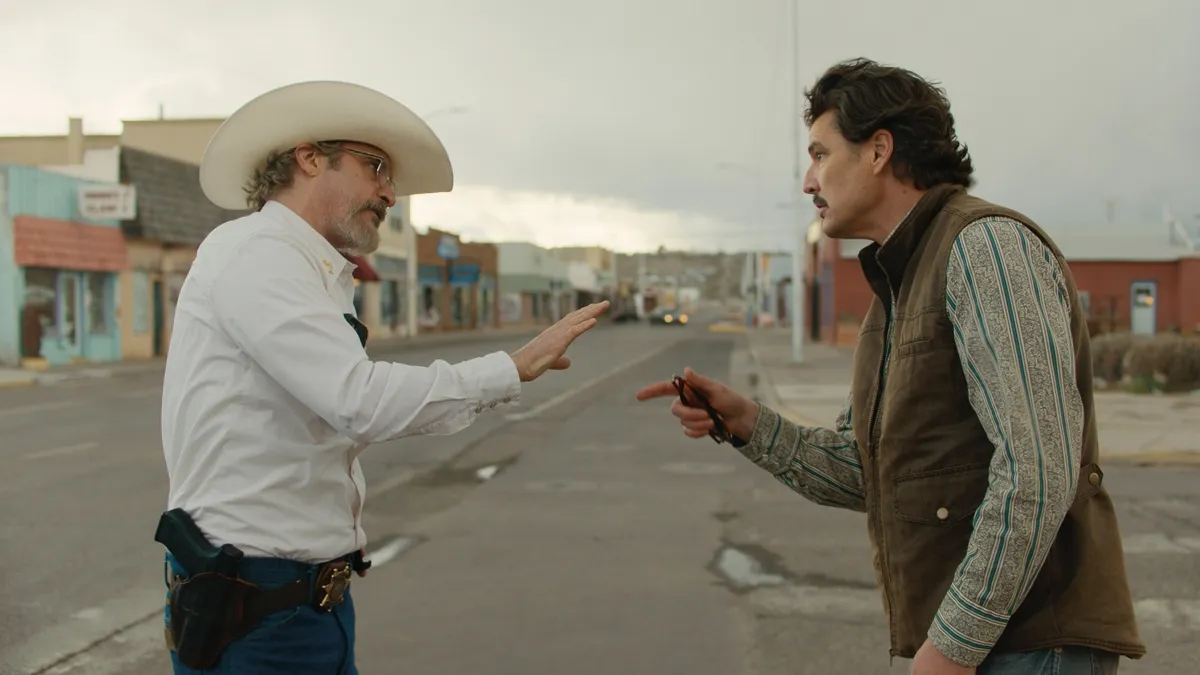
Films categorized as period pieces often transport viewers back to significant historical eras, such as the Renaissance or Victorian England. However, a new film titled Eddington invites audiences to reflect on a more recent chapter in history—specifically, the pandemic era. Set in a fictional small town in New Mexico during late May 2020, this film delves into the social and political tensions that arose during the COVID-19 pandemic.
In Eddington, tension unfolds as the town grapples with differing views on public health measures. Pedro Pascal stars as the town mayor, advocating for mask mandates and social distancing, while Joaquin Phoenix portrays the sheriff, who believes these measures should remain optional. As hysteria escalates within the community, the film highlights a classic Western-style standoff that mirrors the real-life conflicts faced during the pandemic.
Written and directed by the acclaimed filmmaker Ari Aster, known for his works such as Midsommar, Hereditary, and Beau Is Afraid, Eddington reflects Aster's keen understanding of tension and conflict. In an interview with Morning Edition host A Martínez, Aster discussed how the film captures the intense culture wars of the pandemic era, where public health advocacy clashed with personal freedom arguments. He expressed that the story centers around individuals living in disparate realities, leading to a heightened sense of paranoia and conviction.
Aster, who experienced the COVID-19 lockdowns firsthand from his home in New Mexico, witnessed the growing divide in community empathy throughout 2020. In crafting Eddington, he aimed to portray each character with a sense of sympathy, allowing viewers to form their own interpretations of the characters’ political beliefs. "A big part of the project for me was to pull back as far as I could and include as many voices as I could that are a part of this cacophony," Aster explained.
The film is structured in two halves: the first half explores the rising tensions surrounding pandemic policies, while the second half addresses the early Black Lives Matter protests and the spread of disinformation online. As the narrative progresses, the tension inevitably escalates toward violence. Aster remarked, "I think that violence is basically the logical next step to a lot of what has been happening." He emphasizes how societal rage and scapegoating can lead to dire consequences.
Critics have described Eddington as a satire, a classification Aster acknowledges. The film critiques the divisive landscape that has emerged, making it increasingly challenging for people to connect with one another. Aster hopes that audiences will find a sense of solidarity while watching the film, especially those who may have held opposing views during the pandemic's culture war.
Despite the heavy themes, Aster sees a glimmer of hope within Eddington. As a period piece, the film serves as a reflective mirror, prompting viewers to consider their past behaviors and the potential for change. "If there's anything hopeful about the film, it is a period piece, so we can look at the way we were and maybe have a chance at seeing how we are," he shared. Aster encourages audiences to ask themselves whether they wish to continue down a divisive path or explore ways to foster understanding and connection.
In conclusion, Eddington not only provides a unique perspective on the pandemic but also serves as a catalyst for broader discussions about division, empathy, and the potential for healing in a fractured society.